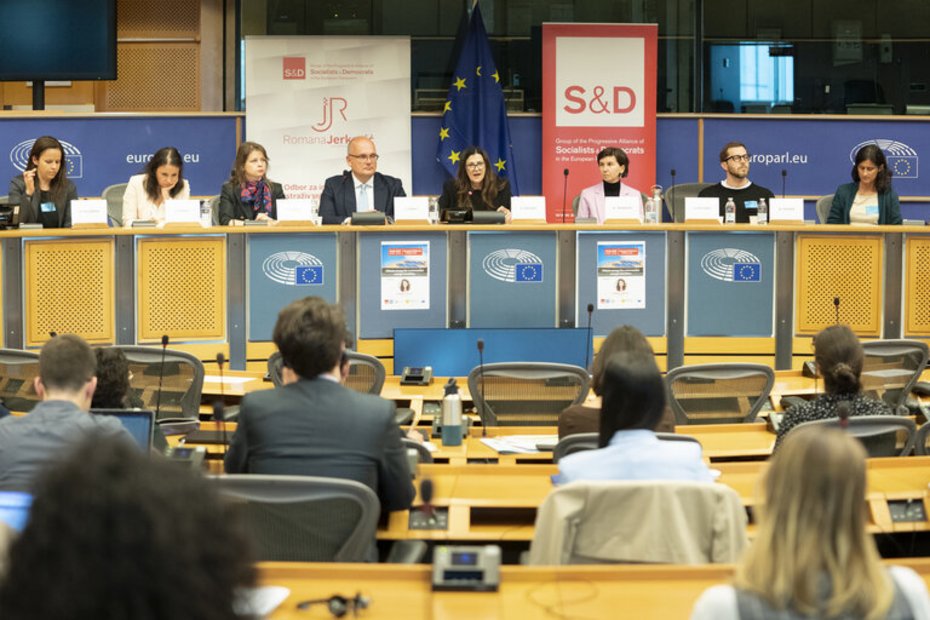SHAREs meets EU Parliament – Conference on Citizen’s Energy
04/05/2023
A conference on the topic of energy communities was held on May 4th 2023 in the European Parliament, which was hosted by the MEP Romana Jerković and supported by the Northwest Croatia Regional Energy and Climate Agency (REGEA) and European Federation of Agencies and Regions for Energy and Environment (FEDARENE). The event was organised within the project SHAREs with the aim of unlocking the potential of energy communities within the electricity market. Specifically, the objective was to create a strong inter-institutional dialogue to enable the fast removal of identified barriers while ensuring the transfer of knowledge and best practices across the EU.
The recent energy crisis, despite REPowerEU and significant efforts at the EU level to speed up the energy transition and reduce dependence on fossil fuels, especially gas, led some member states to introduce measures to regulate energy prices. Price regulation negatively affects the natural functioning of the market and serves as the main obstacle to citizens' energy. With low energy prices, payback periods for small consumers are too long and the incentive to invest too little. In this way, in the long-term, member states create disruptive administrative obstacles that slow down the development of energy communities - pointed out representative Jerković in her opening address.
© European Union 2023 - Source : EP

With upcoming revisions of key directives, starting with the proposal on the new directive on electricity market design, the time is right to review both EU and national approaches to energy communities, and to ensure that a genuine support system is in place.
Energy is not a market commodity. Energy must be a human right. Energy must be equally available to all citizens! What we are witnessing is the short-term buying of political votes, and the long-term damage to citizens to whom, through the energy community, equal participation in the energy market is unlocked, together with energy sustainability and independence. By supporting citizen participation, energy communities can help provide flexibility to the power system through demand response and storage. Energy communities offer the means to restructure our energy systems by harnessing energy and enabling citizens to actively participate in the energy transition and thereby enjoy greater benefits. Croatian and European citizens should be free, and this is the way to enable them to do so - emphasized the managing director of REGEA, Dr. Julije Domac.
Citizen energy communities are a relatively new concept of community energy that received its formal recognition through the Clean Energy for All Europeans package of directives in 2019. They are considered key elements for achieving the goals of the EU's energy transition by 2050 (source: Energy Communities Repository).
Citizens' Energy Communities are defined through the Directive on Common Rules for the Internal Market of Electricity as a legal entity whose primary purpose is to provide environmental, economic or social benefits to its members, shareholders or local communities in which they operate, rather than the creation of financial profit, and which may participate in production, inter alia from renewable sources, distribution, supply, consumption, aggregation, energy storage, energy efficiency services or charging services for electric vehicles or provide other services to its members or owners shares.
Although the EU acquis sets out a solid path for enabling energy communities, EU-wide roll-out has been slower than expected and varies significantly between member states. At the conference, it was emphasized how important the legislative framework is, which must enable the simpler establishment of energy communities. Energy shocks can only be properly answered by greater energy independence and the inclusion of citizens as participants in energy production, it was concluded at today's debate in the European Parliament.
SHAREs’ project coordinator Dr. Angela Holzmann presented the project SHAREs and its contribution to increasing the number of energy communities, with particular focus on development of national one-stop-shops which will provide essential information to all interested citizens.
The conference, which was organised within the SHAREs project, gathered more than 80 participants from across Europe to share valuable insights on community and citizen energy.